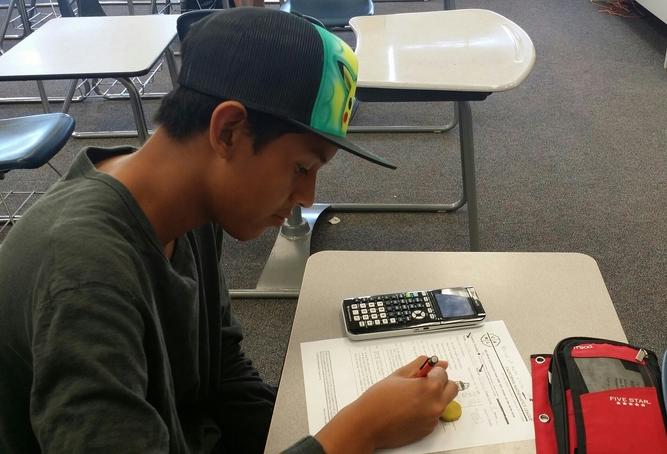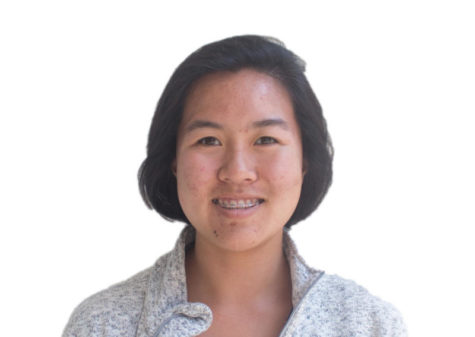The end of September was the start of a long tradition of sacrificing lunch to solve math problems.
The math contest is held roughly every other Tuesday in all of the school’s math classrooms. Students crammed into classrooms for the first contest this year. Some are even turned away when classrooms fill up and run out of contest sheets due to high attendance.
Teachers encourage students to attend the contests, often counting scores as extra credit.
“It’s the best way for students to practice problem solving and develop methods to apply math in a way not shown in class,” said Michael Skrable, a math teacher at Carlmont.
The Tuesday math contests also provide the students an opportunity to challenge themselves and attempt a different style of problem.
“I feel the contest is a great opportunity to advance my math abilities and gain extra credit,” said Edward Vendrow, a sophomore who last year ranked second in the freshmen class for cumulative score. “I liked how they didn’t really use abstract math concepts. What’s hard isn’t the math. The hardest part is to be able to understand the problem and turn it into something you can solve.”
Students use these Tuesday contests to prepare for the American Math Contest (AMC) held in February.
Senior Keegan Kirk said, “They [math contests] encourage critical thinking by using questions that require students to look at all aspects of the problem. It’s really good practice for the AMC.”
The math contests also help pave the way to college for many students.
“Lots of students gain recognition. The contests give them a score to put down and helps students get into college,” said Robert Tsuchiyama, math department chair.
According to Tsuchiyama, Carlmont is registered in two math competitions, the California Mathematics League and the Atlantic-Pacific Mathematics League. Last year, Carlmont ranked second out of all the high schools in the West Region of the Atlantic-Pacific Math League, and Sequoia ranked third, according to the league website. Carlmont has been participating on and off in the math contests since the 1970s, but on a bigger scale since the 1990s, according to Tsuchiyama.
Each year, Math Awards Night recognizes some of the school’s highest scoring participants in the contests.
“Competition for the awards gets intense, but it’s all in good spirit,” said Kirk.


